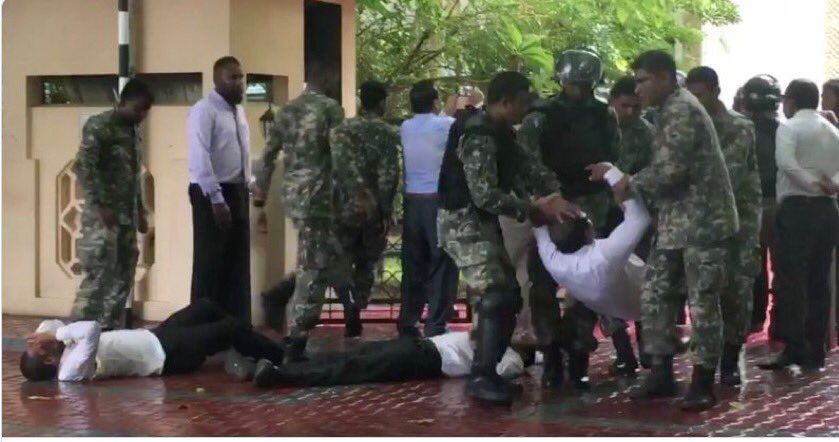IPU deeply concerned over human rights violations against Maldives lawmakers
The Inter-Parliamentary Union “regretted that the mandates of seven parliamentarians had been revoked in the absence of any legal basis under Maldivian law. It also raised the alarm about the increased militarization of the physical premises of the parliament.”

19 Oct 2017, 09:00
The Inter-Parliamentary Union has expressed concern over human rights violation against opposition lawmakers in the Maldives.
In a press statement Wednesday, the global organisation of national parliaments called for a fact-finding mission by its Committee on the Human Rights of Parliamentarians and noted appreciation for an offer made by the Maldivian authorities to grant a visit in the near future.
The IPU “expressed deep concern that a sizeable number of opposition MPs had been subject to legal action” since the opposition secured a majority to impeach the speaker in early July.
“In particular, the Organisation regretted that the mandates of seven parliamentarians had been revoked in the absence of any legal basis under Maldivian law. It also raised the alarm about the increased militarization of the physical premises of the parliament.”
Become a member
Get full access to our archive and personalise your experience.
Already a member?
Discussion
No comments yet. Be the first to share your thoughts!
No comments yet. Be the first to join the conversation!
Join the Conversation
Sign in to share your thoughts under an alias and take part in the discussion. Independent journalism thrives on open, respectful debate — your voice matters.




